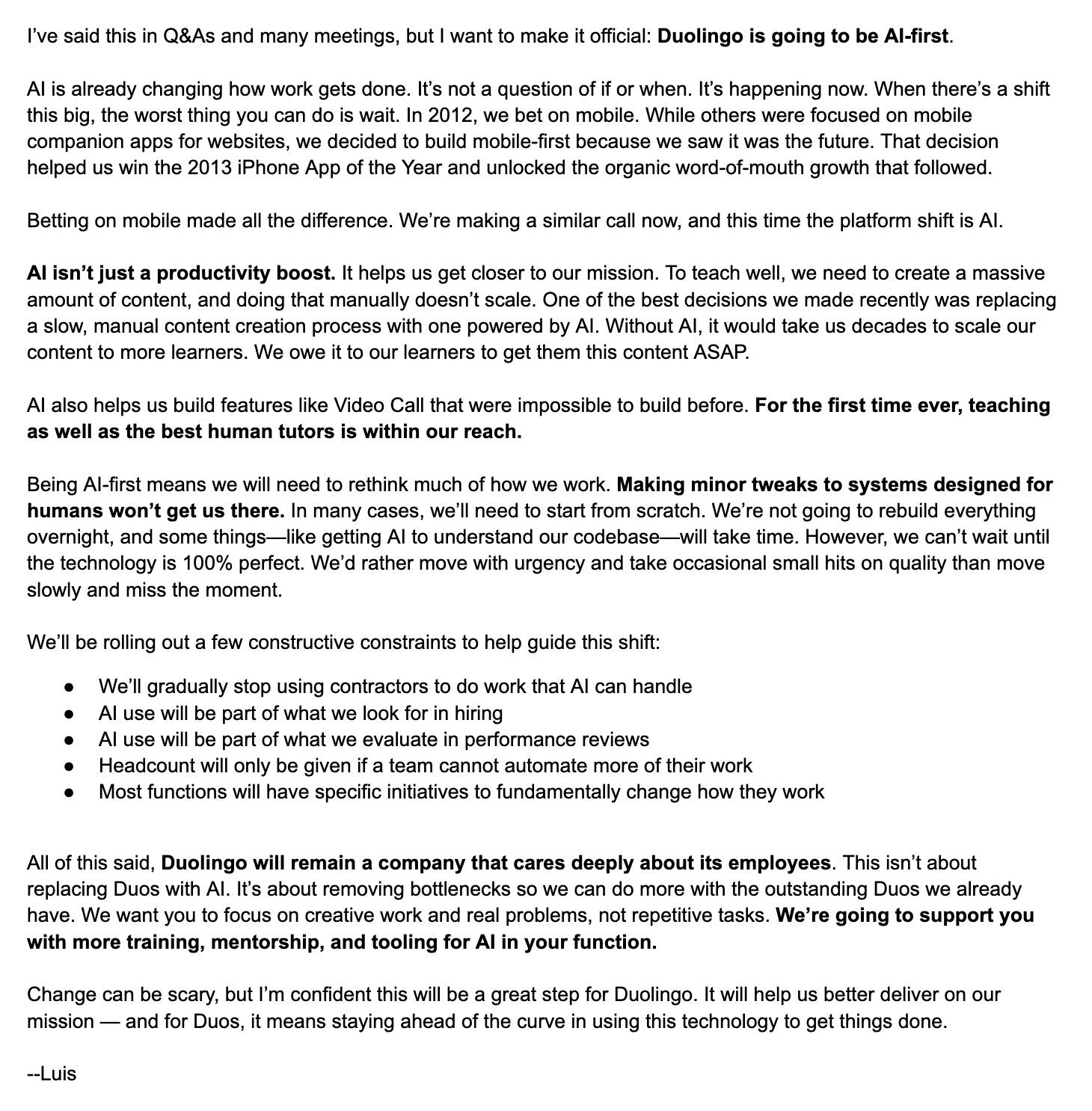Clear Internal Communication on AI is the New Leadership Imperative
When technological shifts happen, companies face a critical choice: hesitate and risk irrelevance, or lead with clarity and urgency. Duolingo, the language-learning powerhouse founded in 2011, is showing how internal communication can be the catalyst for transformational success. In a recent internal memo, CEO Luis von Ahn made it official: "Duolingo is going to be AI-first."
This bold, direct communication isn't just about a new toolset — it's about setting a mindset. In the memo, von Ahn draws a vivid parallel to 2012, when Duolingo bet early on mobile at a time when competitors treated mobile apps as an afterthought. "That decision helped us win the 2013 iPhone App of the Year and unlocked the organic word-of-mouth growth that followed," he reminded employees. Betting big on mobile made all the difference then; betting big on AI, he argues, will make all the difference now.
Luis von Ahn, a MacArthur Fellow and computer scientist renowned for creating CAPTCHA and reCAPTCHA technologies, has always embraced the intersection of technology and human behavior. Under his leadership, Duolingo has grown into a beloved global brand with over 500 million users, known for its playful yet rigorous approach to language learning.
In the memo, von Ahn paints a clear vision: "AI isn't just a productivity boost. It helps us get closer to our mission." At its core, Duolingo's mission is to make education accessible and effective for everyone. To achieve that, scaling content creation rapidly is essential — something manual processes can't deliver. "Without AI, it would take us decades to scale our content to more learners," von Ahn emphasized.
Importantly, the message didn't shy away from the challenges ahead. Moving to an AI-first model means "rethinking much of how we work," he wrote, warning that "minor tweaks to systems designed for humans won't get us there." The memo outlined clear, actionable changes: reducing contractor roles where AI can take over, incorporating AI use into hiring and performance reviews, and tying team growth to automation progress.
Yet, von Ahn’s communication strikes a vital balance: urgency without fearmongering. "This isn't about replacing Duos with AI," he reassured. "It's about removing bottlenecks so we can do more with the outstanding Duos we already have." Training, mentorship, and better AI tooling are promised to help every team member adapt and thrive.
In an era where many employees fear AI disruption, Duolingo's approach shows how clear, confident internal communication can transform anxiety into shared purpose. As von Ahn concluded: "Change can be scary, but I'm confident this will be a great step for Duolingo. It will help us better deliver on our mission — and for Duos, it means staying ahead of the curve in using this technology to get things done."
The lesson for all companies? Leaders must not only embrace AI — they must communicate about it, decisively and with heart. Duolingo is proving that internal messaging can be the difference between surviving disruption and leading it.

